Photo

ENG 333 (Fall 2021)
Professor: Rachel McShane
I’m going to be completely honest here...I was not excited about this course. I didn’t really like or appreciate non-fiction writing or literature, so there was nothing that really grabbed my attention. I truly only took this course for the credit because I needed to get it out of the way, but it turned into so much more than that. Over the course of the semester, my opinions of this form of narrative have completely changed.
I think this shift in mindset has a lot to do with the contents presented in the class. Throughout my time in secondary education, I resented our readings of non-fiction novels. They were usually auto-biographies/biographies from someone of great importance to society that held no real interest to me. However, in this class, we were assigned memoirs that were actually interesting and had more meanings than those I read previously.
With this newfound sense of enjoyment for non-fiction reading and other forms of media, there was also a focus on writing personal narratives. I’m not really a big fan of talking about myself, and I’ve never really been good at it either. So, when tasked with creating these anecdotes of my life, I was more than a little apprehensive. I wasn’t sure whether or not my stories were important and needed to be told, but I finally accepted their importance in my life. It’s needless to say, but this course definitely pushed me both personally and academically—and I’m glad it did.
I truly do believe that this course, and Professor McShane, has made me a better writer. Originally, I was worried about my imperfect writing affecting my standing in this class, but she didn’t want perfect; she wanted honest and true and beautiful and caring and heart-warming and heart-breaking and everything that makes us human. I’m appreciative of the time spent in this class, and I’m grateful for the push it presented.
4 notes
·
View notes
Photo









Midsommar (2019)
Director: Ari Aster
Ari Aster is one of the best filmmakers of all time. Don’t even try to tell me otherwise. I will not be taking any comments at this time. Okay, I’ll say two things: Yes, he’s only made two movies, and yes, they’re both horror films, which are notorious for their inability to be “high-quality.” Of course, absolutely none of that matters because his films have both been equal parts mind-blowing and gut-wrenching; and, even if his next film fails disastrously, leaving Aster unable to recover from his great loss, I will still die on the hill that presents him as one of the best filmmakers. Thank you for listening to my rant.
While both of Aster’s films are AMAZING (which still feels like an understatement), Midsommar remains the superior of the two. The story centers around Dani, who has recently lost her entire family. In an attempt to help her regain some level of normalcy, her boyfriend, Christian, invites her to travel to Scandinavia with him and his friends. Pelle, their college friend, is taking them to participate in his family’s mid-summer festival, which will aid in the creation Christian’s thesis. As they arrive and begin seeing the traditions, they soon realize they’re becoming entangled with a pagan cult.
Okay, it may sound a little trite, but I promise, it’s everything but. Aster is great when it comes to meshing real world issues into his films, making them the true purpose without the audience immediately realizing it. Hidden behind senseless, brutal murders and ritualistic dances, there is a love story. Well, I don’t think it could really be classified as a love story. Instead, it could be seen as the definition of toxicity and gaslighting. From quite early on, it’s apparent that Dani and Christian are nowhere close to being in a healthy relationship. He’s constantly manipulating her and making everything negative that happens her fault. Obviously, he’s a terrible person, and Aster uses it to his advantage. Midsommar is a horror film, but by the end of it, it’s more concerned with revenge than anything.
I was able to view this masterpiece in the theater, thankfully. While I had seen the trailer, I was still unsure about just what I was gonna be watching. But, it was being produced by my favorite production company, A24, and it had Florence Pugh starring, who is one of my favorite actresses. Naturally, I HAD to watch it. By this point, I’m sure you’re aware, but I wasn’t disappointed. It was unlike anything I’d ever seen before, and it remains this way even now. Every time I rewatch this film, it feels completely new, never before seen. My mind is blown all over again. I look up to Ari Aster in many ways, all of which push me to want to create my own films with every viewing. Reinventing the horror genre seemed impossible considering the cookie-cutter formula they tend to follow, but Aster stood out with his completely original picture, changing the game forever.
—
Pelle: He's my good friend and I like him, but... Dani, do you feel held by him? Does he feel like home to you?
(this is quote, “Do you feel held by him? Does he feel like home to you?,” is actually my favorite quote from any piece of media)
9 notes
·
View notes
Photo









Juno (2007)
Director: Jason Reitman
I was probably a little too young the first time I watched this film. That’s not to say that it was inappropriate or too ”mature” for a child to watch, just that I don’t think I really, truly understood the extent of the emotional weight it carries. Juno (2007) tells the story of a questionably too young and too immature teenager, Juno MacGuff, who quickly realizes she is pregnant. Of course, because it is a film, it’s not as simple as it sounds. She decides to give the child up for adoption, and chooses the family who is going to receive the unborn child. Problems arise as it quickly becomes known that the husband of this family is in the same boat as Juno: too young and too immature. This, coupled with Juno’s attempts to continue living with some level of normalcy, makes for an incredibly heartfelt (albeit both heart-warming and heart-breaking) story.
As I said previously, during my first viewing of this movie, I experienced it on its surface level. I didn’t really understand or acknowledge the ideas being pushed through to the audience. Because I didn’t think much of it, I forgot about the film as soon as the credits rolled. Years later, being around fifteen or sixteen, I decided to give it a rewatch out of complete curiosity. This time, with a more “grown-up” mindset, I finally and wholly experienced this film to its full potential. There were no more surface level viewings for me, it was complete infatuation with the deeper meanings found buried in the comedy/drama that presented itself. The turn around from forgettable movie into my comfort movie happened very quickly… probably too quickly if you want me to be honest.
Juno, unlike other sources of media that present teen-pregnany, was looking at it in an entirely different mindset than I was used to. It challenged the stigmas surrounding this issue by making the people in Juno’s life understand and empathize with her pregnancy. Admittedly, her immediate family was disappointed with her lack of caution, but they supported her and uplifted her. The film presented itself in a way that didn’t support or negate abortion, but simply advocated to have a child when you’re ready and be prepared for the consequences that come with.
—
conversation:
Su-Chin: I'm having a little trouble concentrating.
Juno MacGuff: Oh well I could sell you some of my Adderall if you want.
Su-Chin: No thanks I'm off pills.
Juno MacGuff: That's a wise choice because I knew this girl who like had this crazy freak out because she took too many behavioral meds at once and she like ripped off her clothes, and dove into the fountain at Ridgedale Mall and was like, "Blah I am a Kracken from the sea!"
Su-Chin: I heard that was you.
Juno MacGuff: Well, it was good seeing ya Su-Chin.
Juno MacGuff: I'm just gonna go ahead an nip this thing in the bud. Cuz you know, they say pregnancy often leads to, you know... an infant
conversation:
Juno MacGuff: I think I'm in love with you.
Paulie Bleeker: You mean as friends?
Juno MacGuff: No... I mean for real. 'Cause you're, like, the coolest person I've ever met, and you don't even have to try, you know...
Paulie Bleeker: I try really hard, actually.
Juno MacGuff: I never realize how much I like being home unless I've been somewhere really different for a while.
conversation:
Vanessa Loring: Your parents are probably wondering where you are.
Juno MacGuff: Nah... I mean, I'm already pregnant, so what other kind of shenanigans could I get into?
22 notes
·
View notes
Photo

Coded Language occurs when people use words or phrases that have double meanings. While we talked about the way coded language was used to hurt and create suffering for people of color, my experience with this comes from homophobic origins. From my earliest memories, I have heard and been affected by these statements, questions, etc. My favorite from when I was younger was, “Did you grow up with a lot of sisters,” which was often accompanied with or followed up by, “Was your father not in your life?” This obviously stems from my “feminine” qualities that aren't stereotypically involved with straight men. Being asked these questions implied that having plenty of sisters and not having my dad in my life meant that these facts may have influenced my “gayness” or femininity. Another one of my favorites, which is still brought up in my current life, is “Oh wow! You’re gay, but you’re not like THAT gay.” Usually when people say this, they believe they're being kind or funny, I guess anyways. They mean to say that I’m not one of those annoying, “flamboyant” gays. You know, that express their sexuality freely and openly without fear of repercussions? *insert sarcastic eye-roll* This form of homophobia likely comes from people preferring gay people (specially gay men) to be silent or low-key in their sexual expressions/identities. What’s even worse is that this statement has been said by people I would’ve considered to be my best friends. Eventually and inevitably, my gayness comes up in conversation and they say “Well, that’s why I like you so much! Sometime, gay guys can be soooooo much to be around. They’re so LOUD about the fact that they’re gay! It’s like, we get it, you know?” And then, they want me to laugh or agree or something, but I just sit there like, “... mmhm ‘kay? Anyways, I gotta blast,” quickly retreating to the nearest exit.
1 note
·
View note
Photo










Call Me By Your Name (2017)
Director: Luca Guadagnino
This film was somewhat of a contentious idea when I was first confronted with writing this post. Recently, it has been under a reasonable amount of scrutiny for the age difference between the two male lovers. I would be lying if I was to say that it didn’t bother me either. But, regardless of the arguable “grooming” that occurs within the movie and the novel it’s based off of, this film holds an incredibly important role in my heart and life.
Luca Guadagnino’s masterful adaptation of the novel was nothing less than spectacular. Call My By Your Name tells the story of Elio and Oliver falling in love over the course of one hot, blistering summer in 1983’s Italy. Oliver, a 24 year old doctoral student who comes to work for Elio’s father, immediately enamores the 17 year old. Their love begins quite unrequited. While it’s obvious that they both have feelings for each other, they are forced to remain silent due to the negative cognition around homosexual relationships. Obviously, this relationship is problematic due to their age difference, which I will not deny. Regardless of these issues, this film was astonishingly life changing for me.
When the trailer was first released, I had never heard of the director or the novel itself. After watching the trailer, I knew that this was going to be something I would never dream of missing. Quite quickly following the conclusion of the teaser, I went and rented the novel from my local library. I’m a relatively slow reader, but I finished this 256 page novel in one day (which might not sound like an astounding feat, but for me it was). When the movie was released in theaters, I was determined to see it on the big screen. Unfortunately, it was not playing in any theaters in my conservative area (unsurprisingly). Because of this, I was forced to wait a couple of months until it was released physically. Rather quickly, I bought and consumed the film. Actually, I watched it twice in one night—I had never felt so acquainted with a piece of media before.
At the time of my viewing, I had never seen a homosexual relationship protrayed so honestly and openly, full of love and life. In the television shows and other movies that had LBGTQ characters, they were never played like this. They were typically the overly-flamboyant, gay bestfriend who was always, always a minor character (which is not to say that being “flamboyant” is wrong, but it’s just not who I am). These two men were simply human beings who fell in love, despite the climate that surrounded them. They loved and loved unconditionally, not quite complete openly, but still beautifully. They had honest conversations with each other and the people they loved, proving to me that being gay wasn’t someting to be ashamed of.
Where I come from, homosexuality was quite the opposite. Being a part of the LGBTQ community WAS something to be ashamed of. The people in my community who were suspected of being queer were expected to be silent about their relations. While I knew the entire world didn’t act in this light, my world did. I dreamed of the day that I wouldn't have to hide who I was. While all my friends were out galavanting around in their straight relationships, I spent my time alone. The feelings I had for other guys usually went unrequited or unreciprocated, never being able to fully and completely be in a healthy/loving relationship. Because of my lack of these feelings, I never got to experience the stereotypical teenage life. I never got to love openly and freely, I was always in fear of my difference. The few people who actually knew that I was gay loved me, but I knew that the majority would not be so open to the idea. Because of all these issues, this film helped me come to terms with who I really was, what I really wanted, and what I had to look forward to when it eventually came time for me to experience love.
—
Elio: “Is it better to speak or die?”
Elio: “He came. He left. Nothing else had changed. I had not changed. The world hadn't changed. Yet nothing would be the same. All that remains is dreammaking and strange remembrance.”
Oliver: “I'm like you,” he said. “I remember everything.”
Oliver: “Call me by your name and I'll call you by mine.”
Samuel (Elio’s father): “But to feel nothing so as not to feel anything - what a waste!”
Samuel (Elio’s father): “We had the stars, you and I. And this is given once only.”
Samuel (Elio’s father): “Parce que c’était lui, parce que c’était moi.” Because it was he, because it was I.
5 notes
·
View notes
Photo










Raveena — Moonstone EP (2020)
Dijon — How Do You Feel About Getting Married? EP (2020)
When it comes to music, I have a very specific, particular taste. Even with that being said, my music range also covers many genres. I realize that may sound pretentious, but I promise that’s just an observation. Music is an incredibly important aspect of my daily life. Living without this would definitely leave a noticeable hole in my enjoyment of life itself. For nearly all the years of my life, I’ve never been able to concretely identify the songs that hold the top ranks in my mind. That was until about a year ago. While listening to Spotify’s playlist that presents listeners with individually curated music that they believe you’ll enjoy, I found these divine entities. Usually, I listen to these and save a couple so I can eventually return to them...or forget about them completely. But this time was different. My playlist led me to two brand new artists I had never heard of: Raveena and Dijon. “Close 2 U” and “alley-oop” (respectfully) immediately hit my heart with unexpected feelings.
I’ll start off by pointing out the fact that these two EPs stand quite well collectively. They’re both full of magnetically inviting musicality and lyrics, but their standout songs are definitely the two mentioned above. This is especially true when it comes to Dijon’s performance. I’m not quite sure how to describe the ambiance produced from this piece, but simply saying that the vibes are immaculate should suffice for the time being. This isn’t to say that Raveena’s execution is any less—I’m obsessed with her collections—but her counterpart’s EP works better as a whole.
From the moment “Close 2 U” emitted its transcendental waves of melodic masterpiece, I knew it wouldn’t soon be forgotten. And then, the beautiful, sultry singer begins begging this person not to leave, because, in fact; she is too close to them. It was then that I became keenly aware just what this song was doing to me. It produced an almost physical reaction, nearly immediately causing me to shake in agony. On the surface, the lyrics are utterly simple, but I truly think that’s why this song works. It’s not trying to convince the listener that the narrator is some kind of genius, hoping to satisfy them with strong projections of metaphors and such. “Close 2 U’s” only goal is to persuade you that she is in fear—complete, desolating, life-altering fear—of being left alone, without her lover. This love, coming from a powerful place, is quickly being taken away from her. Even with this, she tells the audience that she’s trying to make the best of the situation, trying to spend the little time she has left in her lover’s arms, “Your place is empty, so there’s // More room to dance // I haven’t kissed you enough // This is my last chance.” I’ve listened to plenty of artists who have released many songs about losing this world-shifting love, but Raveena tackles this situation with such grace and simplicity that nothing seems to compare to the feeling.
When it came to “alley-oop,” its impression didn’t happen nearly as quickly. While I was listening to this cathartic, celestial combination of instrumentals and lyrics, I wasn't LISTENING. I was hearing it, but I wasn’t actively engaging and experiencing its warmth. Late in the second to third week of my time with this song, I finally HEARD what Dijon was trying to present to its listeners. He actually creates the foundation of this song in the first line by asking his partner how they feel about getting married. I say “partner” because Dijon never refers to this center of affection by any pronouns. I’m not exactly sure what his sexuality is, and to be honest it’s not really important. Of course, with me being gay, I like to perceive this song in a homosexual light. There’s a section of the piece when he says “don’t raise your voice to make a scene, // he was just playin’ // I don’t see him the way I see you.” This could be understood in two ways: his girlfriend asking him not to be jealous of another guy, or him/his boyfriend asking the other not to be jealous of another guy. Because of what I said earlier, I like to equate this song with the latter meaning. It was this line that actually awakened my interest (or rather complete infatuation) with this song. It completely changed my relationship with this song, but also with the EP in general. Suddenly, it had such an important importance in the overall meaning and experience in my life. It’s such a simple couple of lines and such a simple delivery of those lines, but it wholly piqued my interest in what he was trying to announce to his audience.
—
Raveena: “Your place is empty, so there’s // More room to dance // I haven’t kissed you enough // This is my last chance”
Dijon: “don’t raise your voice to make a scene, // he was just playin’ // I don’t see him the way I see you”
0 notes
Photo










Normal People (2020)
Director(s): Lenny Abrahamson, Hettie Macdonald
When this limited series first premiered on Hulu, it was all I heard about across social media. On the surface, Normal People may seem like your stereotypical, run-of-the-mill romance. This was even my first impression from what I was hearing, despite the high praise. Because it was so acclaimed, I decided to watch the trailer and see for myself why this series was so important and groundbreaking. From the moment it ended, it knew exactly why everyone was screaming about it. Yes, it still moderately reminded me of the cliché niche that romances tend to follow. But even with this, I knew it was something to behold. I decided quickly after watching the trailer to experience this radical movement for myself.
Normal People follows Connell and Marianne as their on-again, off-again romance blazes and quickly turns to embers. Contrasted with the beautiful backdrop of Dublin, this relationship chronicles their life from the end of high school and into college. They seem like an unlikely pair: the “jock” and shy girl. Of course, this is where the cliché begins and swiftly ends. Their relationship begins in secret, as most often do. Connell watches as his friends constantly batter Marianne—making this already self-deprecating woman every more relentless in her pursuits of self-critic. They break up. They go off to college. They meet up in college. They start “dating” again. This time, he doesn’t fit-in with her friends. They break up. This vicious cycle continues, for years later.
Shockingly (and this is going to sound confusing) the show isn’t about their relationship… but it is. The struggles and engrossings of these characters (for me) come more from who they are inside of their relationship, and who they are outside of their relationship. They function well with and without each other, but they’re not truly whole without each other. This is why Normal People works so well, in my opinion. Seeing these two beautiful people flourish and struggle together, and seeing them flourish and struggle without each other was so heart-breaking and bitter sweet. It was hard to pick sides when it came to their break up because I loved both of them so, SO much. But mainly it was because of the lack of communication that led to their eventual breakup. The viewer is completely aware of this, while the characters are wholly oblivious.
There was something disturbing, yet appealing about the way these two characters moved around the world—”the world” being either Connell or Marianne, respectfully. The real star of the show, in my opinion, was Connell. His storyline and the way he cared for Marianne, even when he wasn’t out-right showing it, was mind blowing. This was especially the case as they got older, because he got bolder when it came to presenting his love, arms spread wide. But even without his “arms spread wide,” it was so sensual, even when they weren’t touching each other, and even when they weren’t in the same country as each other. These barriers, both mentally and physically, are nothing compared to the love they share. Eventually, they find their way back together every time… well, almost every time.
Near the end, the pair settles into the idea of being in a long-term, committed relationship. That is, until Connell gets accepted into a creative writing program in New York. When he receives the news, he brushes the idea off, not wanting their relationship to burnout… again. Unfortunately, I knew exactly where this was gonna go. When Marianne discovers his opportunity, she can’t let it go, despite his wishes. The last minutes of the show display this monumental couple on the edge of a collaborative, mutual decision to end their relationship. As they sit on the floor, tears flooding down their beautiful, beautiful cheeks, they say their goodbyes. While they both agree if they ever come together again, “They’ll be waiting for each other.” Again: stereotypical. But something, everything about this show feels so much bigger than everything that’s come before.
—
Connell: “I’m not a religious person but I do sometimes think God made you for me.”
74 notes
·
View notes
Photo
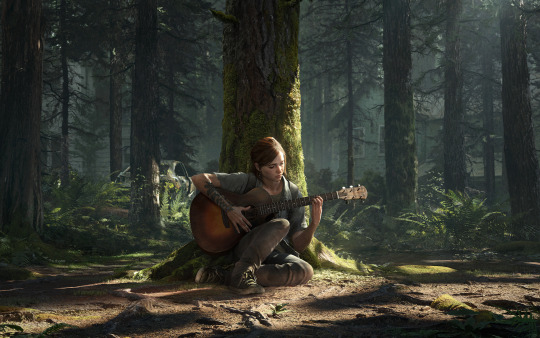
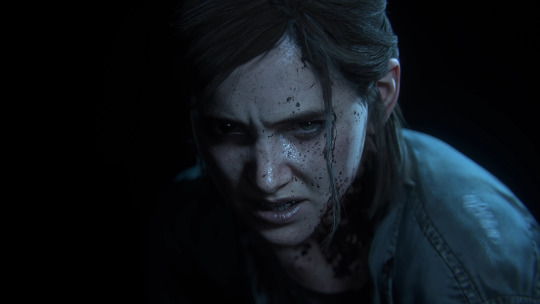
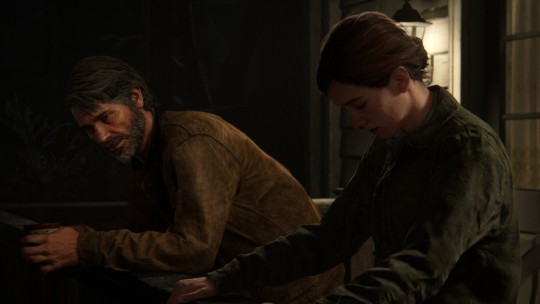
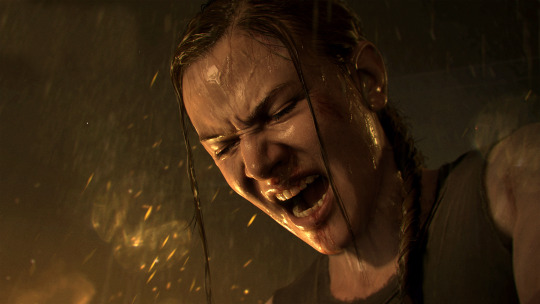
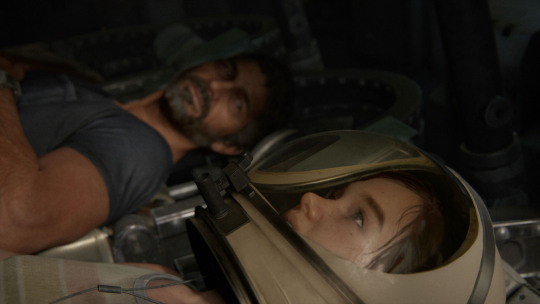
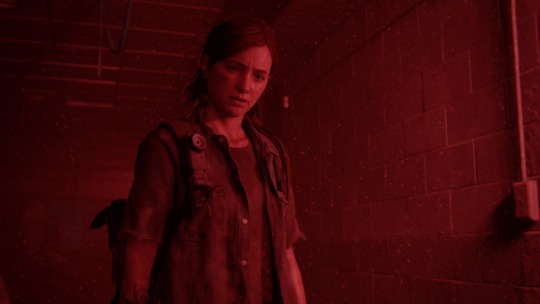
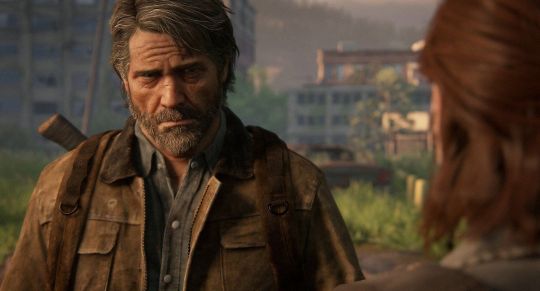
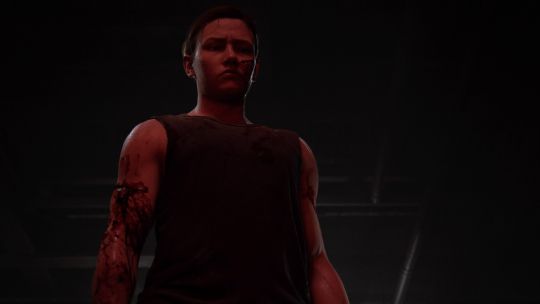
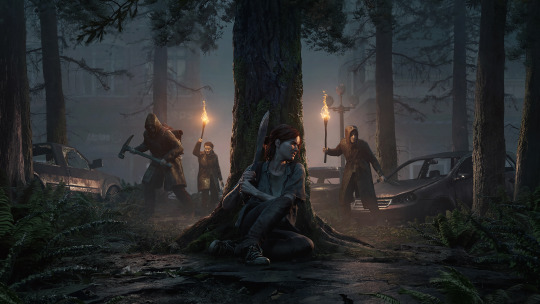
The Last of Us (2013) & The Last of Us Part II (2020)
Director(s): Neil Druckmann, Anthony Newman, Kurt Margenau
From the moment The Last of Us made its first appearance, it took the world by storm. To me, these heart-wrenching, story-driven video games focus on the human condition: love and hate. In the first, we find two individuals who have been pulled together in a twisted turn of events, beginning with the discovery of a deep-hidden secret. After love and loss came within grasp, the second finds these two characters torn apart by an unexpected tragedy. When looking back on these, it is easy to see that while love is the main theme of the first, hate is the central focus of the second. Joel, a broken man whose heart was (figuratively and literally) ripped from his hands, meets Ellie, a stubborn and head-strong young woman, and his world is forcefully turned around. In the next, when these two characters meet Abby, one of the strongest women I’ve ever seen depicted in media, all their lives are completely and utterly shattered. These characters wholly change the trajectory of each other’s lives for better and for worse. Oh yeah, and I forgot to mention: all these Earth shattering events occur during the “zombie” apocalypse.
Nothing compares to the feelings I endured playing through these titles for the first time. Seeing these beautifully written, well thought out, heart-breaking and heart-warming characters come together and fall apart will forever envelop a section of my brain. While my first interaction with the first was through YouTube walkthroughs, when I finally played it for myself in 2017, it was like seeing these characters for the first time. Actively engaging as these characters’ love grew for each other, offset by the desolate, ruined city in the background was an eye-opening experience. Never before had I experienced such a gut-wrenching story while playing a video game. As the story progresses, their love grows for each other and soon, Joel is like a “segregate father” for Ellie. This beautiful transition from total strangers who almost can’t stand to be around each other, to a father-daughter dynamic is something I’ve seen many times but never experienced in the scope of a video game. By the end of their journey, Joel is ready to burn everything down in order to ensure Ellie’s safety... and he does just that.
After the soul-changing adventure of the first, I could not have been more excited for the second. In this, the game shifts perspective; rather than seeing the events unfold from Joel’s view, we get to see Ellie’s. This game introduces Abby, the deuteragonist. Interestingly enough, she is also the “antagonist.” The same could be said for Ellie. Once again, this game managed to absolutely blow my mind by doing something I had never quite seen before. See, Ellie and Abby are both the protagonists of their own stories, with the other being the antagonist in their respective views. Needless to say, despite having a sort of hatred for Abby because of my well-founded love for Ellie, I also made a deep connection with her. Because of this, by the end of the game I had my heart ripped from my chest. Never before had I experienced such a depression after finishing any sort of media. Seeing these two apocalyptic-level feminine forces coming face to face caused an immense stress in my life, which was only furthered by my hands being the controller of the inevitable outcome.
Having to undergo this change in theme is another reason why this duology has a permanent place in my heart. Love and hate are the two most powerful emotions, in my opinion. Having to see these beloved characters finally come together, just to see their worlds annihilated, was obviously traumatizing. Even with the pain, the second entry is my absolute favourite. The writing, directing, and acting is unparalleled in quality. These games further proved to me that art is not one-dimensional. Their story-driven, heartfelt and personal narratives were something I only expected to encounter in literature and film. To me, it’s incredibly motivating, as an inspiring creative myself, to see other creators making such affecting and emotional media that exposes the most valued human emotion—love—and the flaws that come with the feeling.
—
Ellie: “To the edge of the universe and back. Endure and survive.”
2 notes
·
View notes
Photo






The Handmaiden (2016)
Director: Park Chan-wook
Because this is my first “official” post, I felt it only fitting to present my favorite film. This masterpiece went completely under the radar when it came to major audiences and award shows. While I’m obviously biased, I think this film could’ve been an excellent contender to the “Best Picture” winner Moonlight (2016). Both films boast incredible representation for LGBTQ individuals and people of color. With that being said, however; The Handmaiden takes the cake in my humble, humble opinion.
When I began watching The Handmaiden, I knew little regarding the plot. At that time, I had only seen stills of the film and small, non-spoilery reviews. And for this, I am ETERNALLY grateful. Going blind into a film is such an exciting experience, but watching this masterclass in filmmaking was something to behold. This had me on the edge of my seat for all 2 hours and 24 minutes. With every twist and mood change, I felt the knife slowly turning, building up for an incredible conclusion. This was my first time seeing these actors, and they could not have been any more perfect. They perfectly portrayed every heartbreaking, soul shattering emotion these two immensely powerful women experienced.
For most of my life, I’ve wanted to be a filmmaker in some capacity—whether that be directing, screenwriting, or cinematography. Unfortunately, this is not an easy career to enter, let alone be successful in. Because of this, I recall my hopes and dreams and resign to a more “reachable” career path. But every now and then, a film comes along and completely pulls me back into my possibly unreachable goal of being a filmmaker. This movie pulled me in, and wouldn’t let me go. For weeks (and when I say weeks... I mean weeks) I constantly thought about this movie. When I was at work: The Handmaiden. When I was doing laundry: The Handmaiden. When I was trying to sleep: The Handmaiden. These constant, drowning thoughts refused to leave my brain, and I was totally fine with that. If there was one thing I had to think of all day long, I was glad it was this jaw-dropping experience of a movie. This renewal of wanting to pursue my dreams has yet to leave my mind solely, with 100% credit: to this movie.
While it’s true that I have a running list of favorite films, no other has had the lasting impact that The Handmaiden has. It’s completely possible that one day these feelings might change and this brilliant movie could be lost in the endless sea of great cinema, but I’ll always have the blessing of spending this time lost in my own head, consumed by this film.
—
Lady Hideko: “The savior who came to tear my life apart. My Tamako. My Sookee.“
6 notes
·
View notes
Photo










complete Euphoria
Euphoria (2019-)
Cast: Zendaya
Hunter Schafer
Jacob Elordi
Maude Apatow
Alexa Demie
Barbie Ferreira
Sydney Sweeney
Creator: Sam Levinson
Director: Sam Levinson
Pippa Bianco
Augustine Frizzell
Jennifer Morrison
Writers: Sam Levinson
Hunter Schafer
Cinematographer: Marcell Rév
Drew Daniels
Adam Newport-Berra
André Chemetoff
7 notes
·
View notes